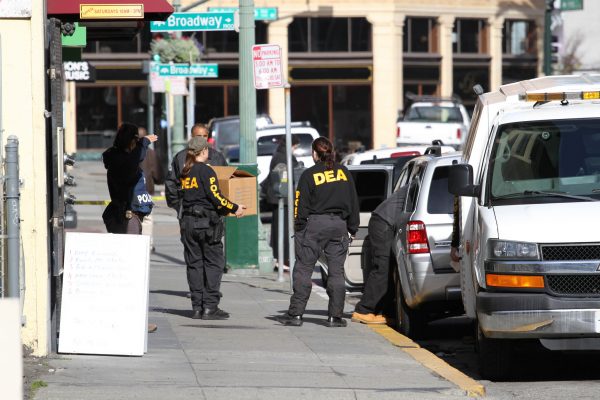“The War On Drugs” Is A War On Much More
November 19, 2016
Everyone is better than the worst thing they have ever done.
I am paraphrasing lawyer, author and Founder and Executive Director of Equal Justice Initiative, Bryan Stevenson. He said this in a Ted Talk in which he explained the racial injustices built into our society and criminal justice system. He said that people who lie are more than just liars, someone who steals is not just a thief and even someone who kills is more than just a killer.
We are missing this sense of compassion and respect for human dignity in our criminal justice system, especially with regard to our drug policies. We have continually criminalized and dehumanized nonviolent drug offenders and drug user, leading to an overpopulated prison system.
Nonviolent drug offenders are given harsher sentences than their crimes deserve and drug users are put behind bars when they should be given treatment and the opportunity for rehabilitation. We force this population out of society and limit their chances of getting better.
A drug conviction could keep you from getting a job or housing, keep you from going to school, keep you from getting federal benefits like food stamps or keep you from voting. Even if we’re not at the point to simply release nonviolent drug offenders, we need to allow them to resume their lives post-conviction instead of perpetually treating them as criminals, excluding them from receiving basic human dignities.
Many of our draconian drug policies and sentencing laws came out of what has been known as the war on drugs, surfaced around the 1970s under the presidency of Richard Nixon. Drugs, and those who dealt and used drugs, became “public enemy number one.”
But the public enemy was never just drugs. We not only declared war on drugs, we declared war on the poor and on people of color.
The U.S. has the highest prison population with one in every 111 adults incarcerated in a federal prison, according to the Drug Policy Alliance. The war on drugs has contributed to this over-population of our prison system, often times placing nonviolent drug offenders behind bars.
According to the same source, even though black, white and Latino people use drugs at about the same rate, about 57 percent of those behind bars for drug offenses are black or Latino. We are disproportionately criminalizing, incarcerating and ruining the lives of minorities for crimes that are punished unjustly.
It is estimated that the U.S. government has spent over $1 trillion fighting this war, yet we still have this overpopulated system. Ending the drug war and reforming our drug policies so that we do not imprison nonviolent offenders will not wholly end our mass incarceration problem, and there are other flaws in the system that need to be addressed. But, according to The Washington Post, the most serious crime keeping 51 percent of the federal prison population behind bars is a drug conviction. We are in no way helping these individuals, their families or their communities by putting them behind bars. We are exacerbating poverty and excluding certain members from participating in society.
President Obama has commuted the sentences of 944 prisoners during his presidency, and it is important that clemency continue to be granted to nonviolent drug offenders. Mandatory minimums should be slashed, treatment and rehabilitation should be implemented instead of harsh prison sentences, and we should treat them with humanity and dignity.
While Hillary Clinton outlined a $10 billion plan to tackle prevention, treatment and recovery should she have been elected, according to ABC News, Donald Trump has proposed to build a wall, hoping that doing so will stop the trade of illegal drugs. His tough-on-crime persona as the “Law and Order candidate” will do nothing to cut the prison population. In fact, it will more likely increase it.
Instead of doling out harsh sentences, we need to treat drug offenders with compassion. Addicts are not criminals and punishing them as such does nothing to help. Nonviolent drug offenders do not deserve to suffer draconian measures such as mandatory minimum sentences. They do not deserve 25 to life, they deserve a second chance and basic human dignity.













